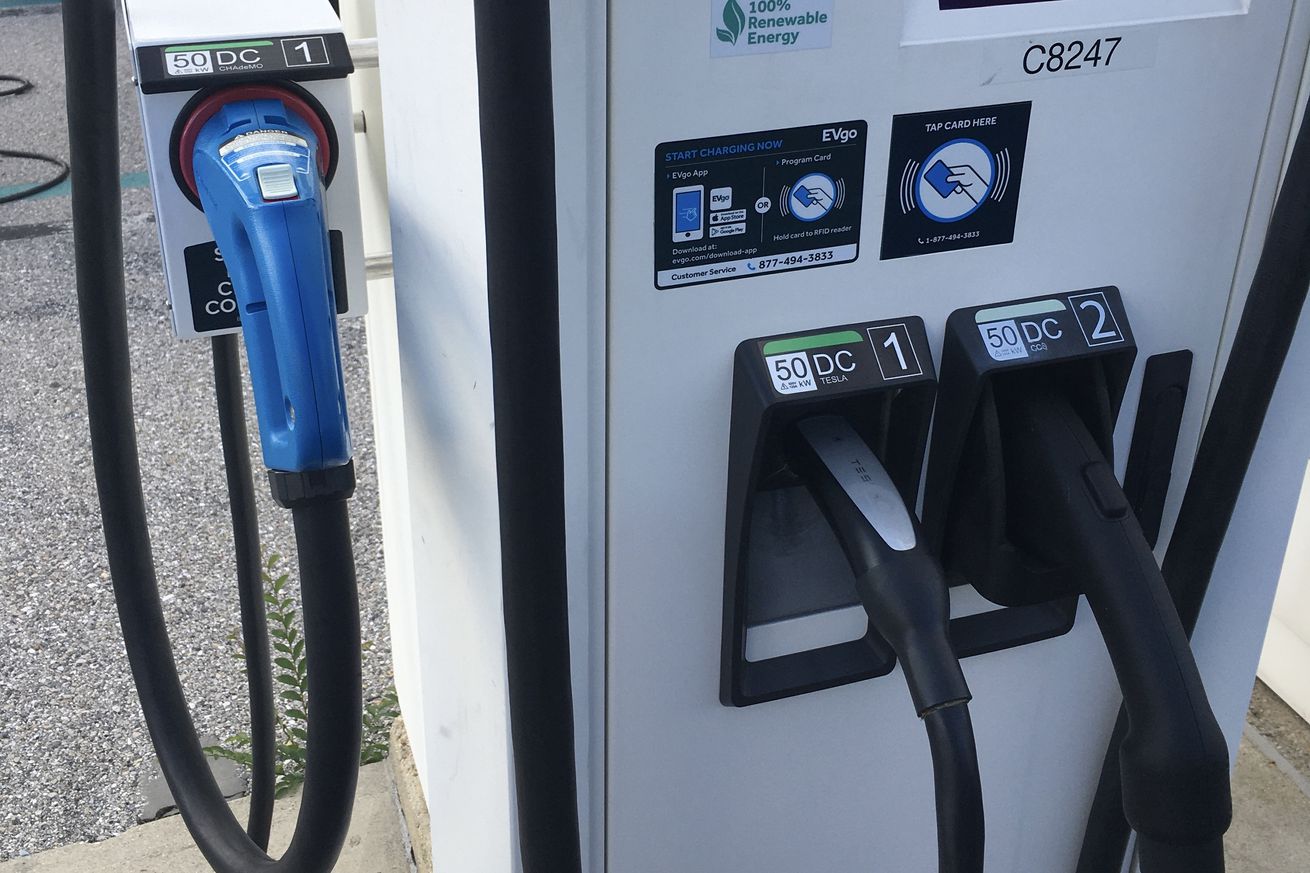
Seven major automakers are teaming up on a North American EV charging network
A new group of automotive super friends is banding together, promising to build the next big North American electric vehicle charging network. These worldwide automakers — BMW, General Motors, Honda, Hyundai, Kia, Mercedes-Benz, and Stellantis — announced a planned joint venture today to erect easy-to-activate DC fast chargers along US and Canadian highways and in urban environments.
The grand plan for the currently unnamed partnership is to install “at least” 30,000 high-speed EV chargers by 2030, with the first ones to open summer 2024 in the US. The collective plans to leverage National Electric Vehicle Infrastructure (NEVI) funding in the US and will also use other private and public funding from state and federal sources to build out the network.
The grand plan for the currently unnamed partnership is to install “at least” 30,000 high-speed EV chargers
Current EV charging networks, from Tesla Superchargers to Electrify America, have stations installed in places where people can shop, eat, and use the bathroom. In a similar fashion, these new chargers will also be installed along routes to vacation destinations and in metropolitan areas.
The new stations will connect and charge EV models made by the partnered automakers without having to fumble with another charging station app. The companies also plan to integrate the developing “Plug and Charge” standard that the Federal Highway Administration is attempting to standardize.
“The better experience people have, the faster EV adoption will grow,” GM CEO Mary Barra states in the joint venture press release. Many charging networks today require their own apps and have issues of reliability. Tesla’s Supercharger network, which is considered among the best in the world, will be available to vehicles from automakers including Ford, GM, Volvo, and more without needing people to activate with an app.
The new joint venture is also planned to be entirely powered by renewable energy. It’s not known if renewable energy will directly power them or if the companies plan to buy credits like Rivian announced yesterday.
Canadians will have to wait for “a later stage” before initial stations are installed. All stations will include the standardized Tesla North American Charging Standard (NACS) ports and also the current widely used Combined Charging System (CCS) plugs.
Update July 26th, 2023 11:47AM ET: We’ve received confirmation that the full network is planned for completion by 2030.

